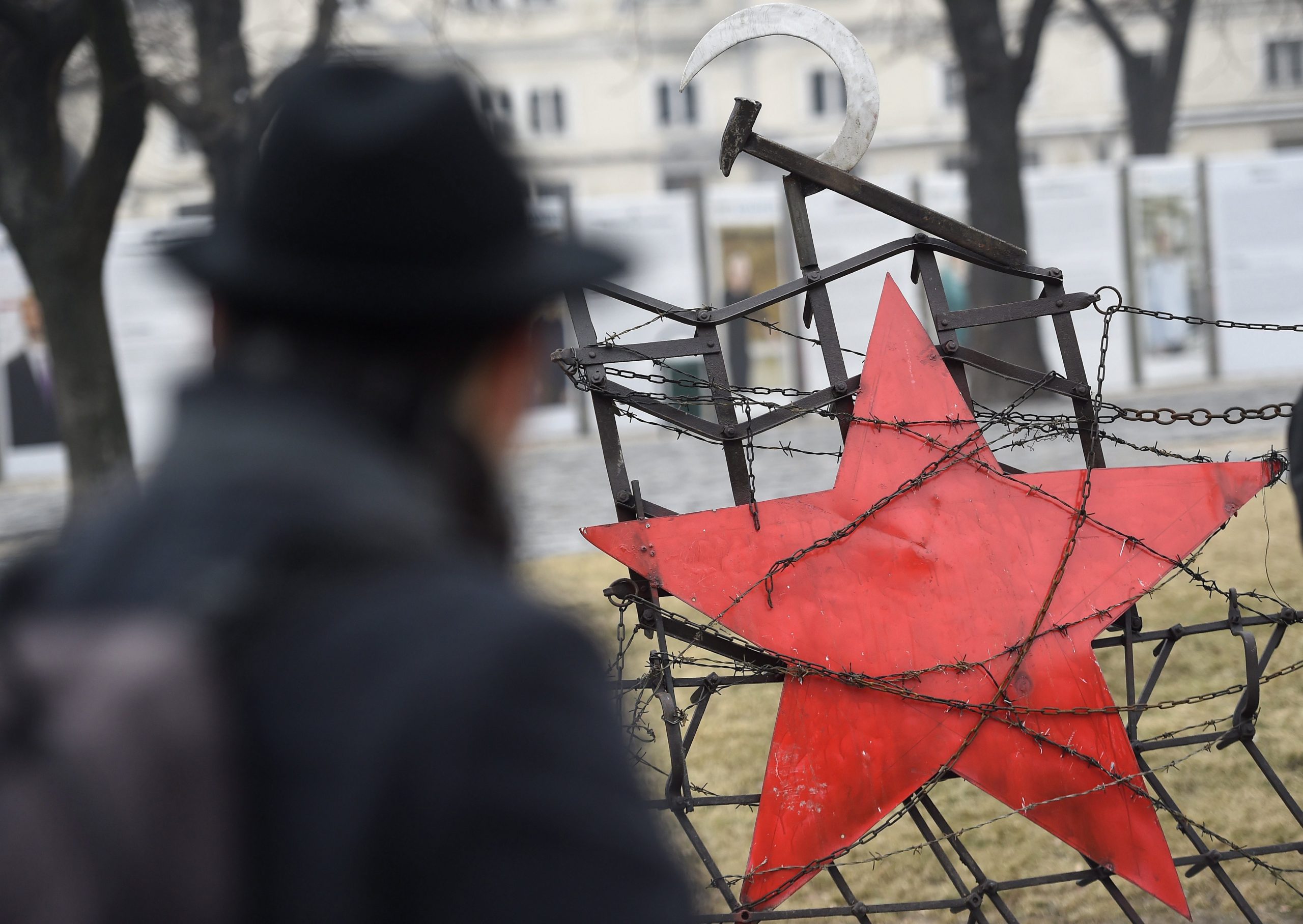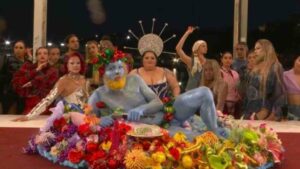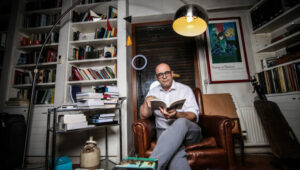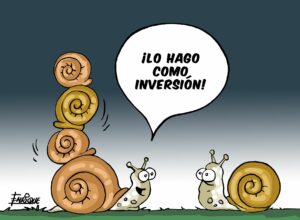
Journey to the den of the wolf
|
Getting your Trinity Audio player ready...
|
Let's turn the crank and turn back time. Let's relive three moments that were decisive for me, but that I expose here because of how much they express and mean.
They occurred in a short period, between the summer of 1971 and the spring of 1972, in two countries (Hungary and Romania), located on the other side of the Iron Curtain, where the then young communist who writes today had gone to die. These lines. My militancy in the Party (we didn't even specify which one: it would have been lowering its rank) had caused the ominous-dictatorship-that-subjugated-us to condemn me in contumacy to a few years in prison that I never managed to serve.
And yet, no. It was not political reasons that led me to cross half of Europe aboard a Six hundred to go plant my royal estate in the beautiful city of Budapest. It was about something else. They were exclusively personal reasons—amorous, more precisely—that led you, comrade—the comrades apostrophized me—to abandon the high missions that we had entrusted to you to start running like any petty bourgeois behind some skirts.
My passport (it no longer said "Valid for all countries except the USSR and satellite countries") was in order, and with it in my pocket I crossed the steel (not very resistant, as you can see) of the Curtain, on the other side of which I stood. They were waiting for some long-awaited skirts.
A bar in Budapest
In the company of the one who years later would be the mother of my children, I was walking through the streets of Budapest one day when suddenly...
«Kommunist! Kommunist! "Kommunizmus!", someone exclaimed, loudly, in the bar we were about to enter. Two drunks were engaged in a bitter argument in which those magical words that carried the sacred fire with which I still clothed them were twisted. I didn't care that I hadn't understood any other words of their dispute: those two were enough to awaken my attention and make all my senses tense. All the more so since those who shouted “Kommunist!” and "Kommunizmus!" They embodied in my eyes the very expression of the Just, the Good and the True (the Beautiful then blew my mind). Those who were fighting in an increasingly heated tone were full-fledged proletarians. Dressed like proletarians and smelling like proletarians, they talked—what else could it be—about the virtues of proletarian ideology in the bar of a proletarian state. What more could one ask for!
What I did ask for, and urgently, was the translation of what was being debated there.
Once the translation was obtained, a slab collapsed on my head. What the angrier of the two proletarians said was:
«I can tolerate, uncle, that you criticize my dead and my living, that you curse my parents and my children. But tell me, man, that I… I… I'm a communist; that you pretend, damn your shadow!, that I have something to do with that shitty communism... Ah, no, not that, man! This is why I'm going to break that ass face you're wearing, bastard, more than bastard. “I, communist!… I, communist!…”
With my head down and my tail between my legs I left the bar.
Sopron
Weeks later we met in Budapest itself with some friends who had invited us to dinner. These were not proletarians, they were not part of the class that leads the vanguard of the new and revolutionary world. They were intellectuals, "forces of culture", destined to accompany the "forces of labor" on the path of socialist progress.
We had the following conversation, I don't remember if in Spanish or French.
—Let's see, friends. —I told them—. I understand how extraordinarily difficult your situation is. I am in full solidarity with you and with all the Hungarian people.
—Do you sympathize… as a foreign communist tourist here?
I blushed, hesitated... and in the end I blurted out something like:
—No… Unfortunately I am not speaking on behalf of the Party. I would like it, yes.
And after a pause:
-Behold. I still harbor certain hopes for the Spanish communists. However…
Let the reader be indulgent and attribute the previous nonsense to the youthful naivety of the person who uttered it. Which continued saying:
-However, The Spanish communists are one thing and the rest of the international communist movement is quite another. As far as this and the countries of real socialism are concerned, everything, absolutely Everything seems irremediably lost to me. What scares me is that, if we have reached such a historic failure, a whole abyss opens up at our feet. Because, let's see, you'll tell me... how to get out of this situation? What alternative do we have? What is the way out, what?
—The way out, friend... There is only one. The one that passes through Sopron! —and a thunderous laugh cut the air.
Sopron!, the border city between Hungary and Austria, the city where the Curtain and its Steel stood, the border city that demarcated oppression and freedom (but it was no longer clear on which side one was on and which other).
Snagov Lake
Change of decoration. A few months have passed and we find ourselves in 1972, celebrating in Romania, on the shores of Lake Snagov, Orthodox Easter Sunday: that day when, in addition to resurrecting an entire God, he comes to life, exploding in his hubbub of lights and colors, smells and flavors, the other divinity, the other dimension of the sacred: Nature. Ah, what spring is like in Central Europe! What is that awakening of the land that has spent months numb under ice and snow. What is that explosion in which the air, as if recently washed, becomes agile and fresh, alive and pungent, smooth and dense. So dense that you can even feel it with your hands, bite it with your teeth, while its scream of light and life leaves the plants enraptured, the trees upright, and the beasts intoxicated.
And in the midst of such an apotheosis, brutally contrasting with it, hurting it, rose the sinister complexion of those who accompanied my wife and me in order to spend, comrades, a pleasant day of vacation in the chalet that the Party (the Romanian ) generously makes available to our group.
The group in question was Radio España Independiente, Estación Pirenaica (yes..., they pretended to broadcast from the Pyrenees!), the station that launched its pamphletary slogans ("To strike, to strike! Peasants, workers, students "To the general strike!") in the midst of a cacophonous gurgling of interferences, which were probably the ones that, by making it difficult to hear, prevented any worker, student or peasant from going to any General Strike.
Two circumstances had led to a new voice joining those that, like ghosts emerging from nowhere, tried to make themselves heard amidst the constant interference. The first of such circumstances was that the Party (the Spanish), remembering that wayward and petty-bourgeois comrade who had dared to abandon the high responsibilities that had been entrusted to him, now entrusted him with others: those of working as an announcer on said clandestine station. The second circumstance why that job came to fruition was that the comrade in question was naive enough to accept it. How could he do it, knowing everything he already knew? Precisely for that reason, because, knowing it, he hoped to discover among the Spanish comrades the exception that would allow him to find a way out of that morass. A "way out" other than the city of Sopron.
There, then, was the militant idealist heading that Easter Sunday to the chalet that the comrades of the (Romanian) Party so kindly put at our disposal.
The place where the chalet stood was splendid; The building, with elegant neoclassical air, had as much class as the manners of "the comrade guardesa", as they called the peasant woman who welcomed us. I was very intrigued by this woman with exquisite manners that contrasted with the rudeness of her fellow patrons. Even more surprising was the impeccable French spoken by that maid who was forced to live in a hut at the end of the garden and take off her shoes to enter the main house (always empty until the gentlemen arrived) in order to remove the dishes from the house. Sèvres porcelain, the Bohemian crystal glasses and the silver cutlery with which he served us.
The grotesqueness of the situation caused a bitter tension to cross the air. But only the one that involved the two of us, since the comrades remained totally indifferent to the comings and goings of the maiden. Our face, on the other hand (both mine and that of my wife, who had been forced to accompany me) was enveloped in a stupefied discomfort that led one of the comrades to ask us:
-Something happens? Do you feel bad, comrades?
—The guard… What's going on with that woman? How can it be so elegant? How can a Romanian peasant speak such excellent French?
—Ah, the caretaker… She is the former owner of the house. She and her husband, a pharmacist who must have been a deep fascist, owned it, because when the Revolution took place they wiped him off the map and the house was confiscated. But the Party took pity on the poor widow and allowed her to stay as a servant... sorry, as a caretaker, so that she could take care of the property that now belonged to the People.
There was nothing more to hear, nothing more to say. So we got up, as he said, we looked sideways, we left and there was nothing.
The exit was in Sopron
There was nothing... by miracle and because the merciful gods saw fit. There was nothing even though a couple of weeks later I decided to risk my life as noble as it was reckless. It was the day Troy burned when I told my comrades, face to face and looking into their eyes, that I was leaving, that I couldn't take it anymore. Even more serious, I was leaving for reasons that... No, this time it was not for petty-bourgeois personal reasons. I was leaving for reasons as strictly political as... Look, I'm telling you clearly: I can't stand being immersed in the pigsty of the international communist movement, I'm not willing to continue being a participant in that machinery of death and desolation that you have... Etcetera, etcetera , etc.
Courtesy: Ideas-Gaceta de España.
You can see more articles by our author at:
https://ideas.gaceta.es/







